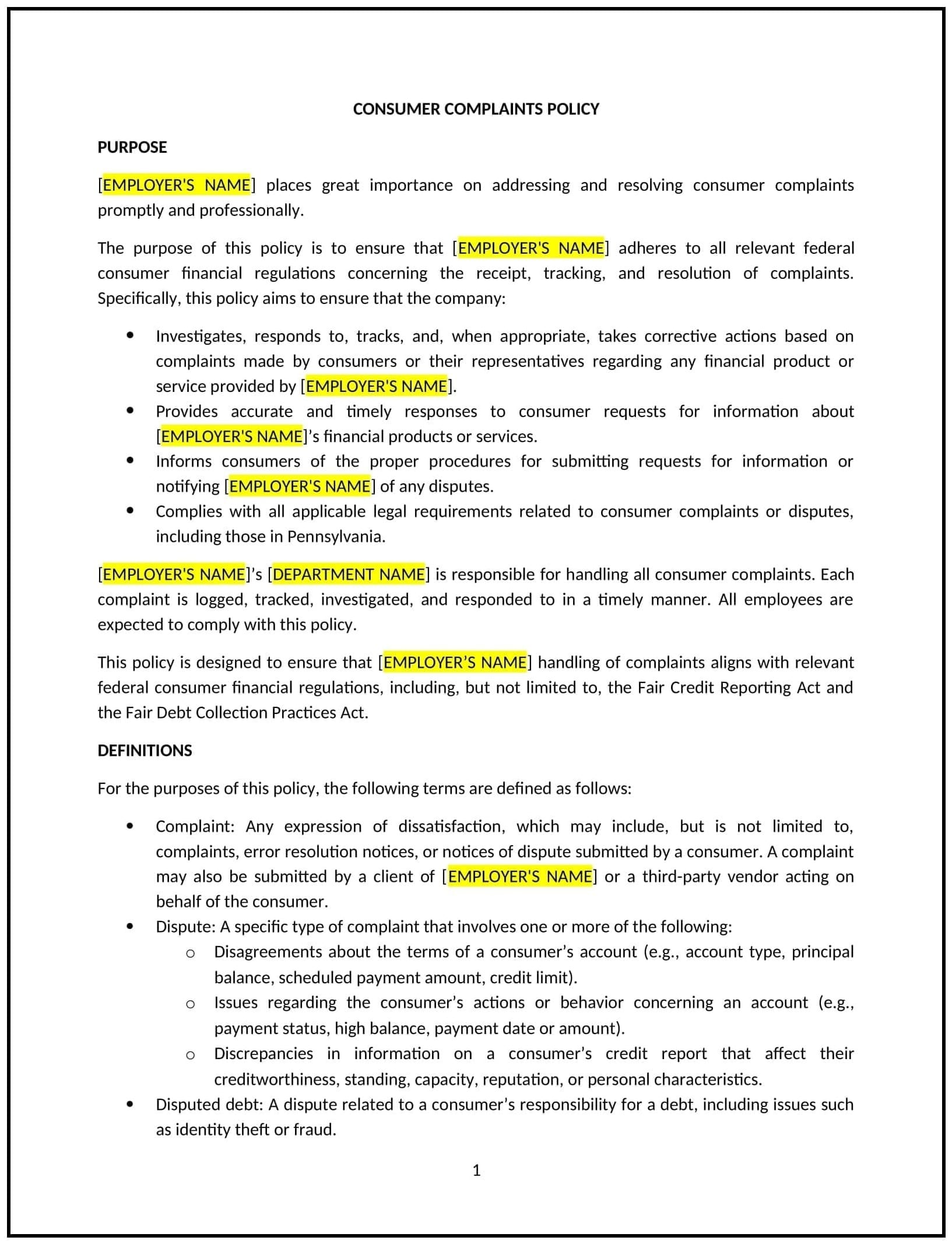Consumer complaints policy (Pennsylvania): Free template
Got contracts to review? While you're here for policies, let Cobrief make contract review effortless—start your free review now.

Customize this template for free
Consumer complaints policy (Pennsylvania)
This consumer complaints policy is designed to help businesses in Pennsylvania establish a clear and transparent process for managing customer feedback and resolving complaints effectively. Whether operating in retail, service, or other industries, this template provides guidelines for ensuring customer concerns are addressed promptly while aligning with Pennsylvania-specific regulations and customer expectations.
By using this template, businesses can strengthen customer relationships, improve service quality, and reduce the risk of disputes.
How to use this consumer complaints policy (Pennsylvania)
- Define a complaints process: Clearly outline how customers can submit complaints, including available channels such as email, phone, or online forms.
- Establish response timelines: Specify how quickly the business will acknowledge and resolve complaints to ensure prompt service.
- Assign responsibility: Identify the team or individual responsible for handling complaints and ensuring timely resolution.
- Include escalation procedures: Detail steps for escalating unresolved complaints to higher management or external mediation if necessary.
- Reflect Pennsylvania-specific considerations: Tailor the policy to align with local customer service expectations and Pennsylvania’s regulatory requirements for complaint handling.
Benefits of using a consumer complaints policy (Pennsylvania)
A well-structured consumer complaints policy supports customer satisfaction and operational efficiency. Here's how it helps:
- Enhances customer trust: Demonstrates a commitment to addressing customer concerns fairly and transparently.
- Improves service quality: Provides valuable insights into customer feedback, helping businesses identify areas for improvement.
- Promotes consistency: Establishes clear procedures for handling complaints, ensuring a consistent approach across the organization.
- Reduces disputes: Minimizes the risk of escalated conflicts by resolving complaints promptly and effectively.
- Reflects local needs: Aligns with Pennsylvania-specific customer service practices and regulatory requirements.
Tips for using a consumer complaints policy (Pennsylvania)
- Communicate expectations: Inform customers about the complaints process through visible channels like websites, signage, or receipts.
- Train employees: Provide training on handling complaints professionally and empathetically to ensure a positive customer experience.
- Monitor trends: Regularly review complaints to identify recurring issues and implement preventive measures.
- Provide updates: Keep customers informed about the status of their complaints to build trust and engagement.
- Review periodically: Update the policy to reflect changes in Pennsylvania regulations, industry standards, or business practices.